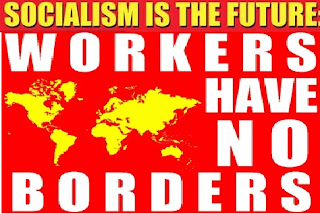Poverty, unemployment, bad housing, crime, and the host of other evil social phenomena that continually haunt us all have their groups of “do-gooders” spending time, money and effort vainly trying to stem the flood of misery or effect reforms, but these evils remain. As workers, ever close to the miseries which shock our reformers, and socialists, knowing full well the reason for such miseries. Capitalism is the basic social cause of all these evils; that which the reformers of this world struggle against are but the effects.
Even the reformers have been forced to concede that only dismal results have been so far achieved in the fight against widespread deeply entrenched misery. They fight shadows, the Socialist Party prefers to get to grips with substance. we know that there is only one truly effective “reform," and that is socialism.
Capitalism, with its private ownership of the machinery of wealth production, forces on the mass of people a condition of slavery, wage-slavery. All the things necessary to the sustenance of human life become commodities, their use value only incidental to their exchange value. Even our physical energies—our labour power—has a commodity character which, since we are propertyless, we are obliged to sell to the owners of the factories, mills, land, etc., in order to get the wherewithal to buy the things we need.
It is a staggering thought that even the humble loaf of bread—the stuff of life to the masses—is not produced, under our present social system, primarily for the purpose of being eaten. If you have the money you can buy all the bread you want, and there is no law to prevent you burning it should you so desire? On the other hand, if you are without money and starving you will go without bread.
Socialism can only be majority action—Democracy.
Socialism is an attempt then to show the prime causal factors in the evolution of human society. Men and women make history and socialists contend and what some have made, others can understand. In this way, history becomes an intelligible process and the past is capable of being reconstructed by the same pattern of enquiry which marks other fields of scientific investigation. Marx’s views on history were sharp and clear. Human effort and struggle he held were the means which brought about the historically determined. He never sought to make history a mystery. Indeed he claimed that history had no greater reality than that which could be discovered by the analysis of actual historical events. While unlike Hegel he never believed that history was the outcome of logic and reason, he nevertheless believed that it could be rationally explained. Marx had then a view point on history. He did not believe it could be explained by abstractions like power drives or impulses. Nor it might be added by spirit, nature or some economic first cause. For Marx history had no purpose which was not the purpose of man. No goals which are not human goals. It is men who will to do things. But what men will is always connected with elements in the social situation which are unwilled. Because society is a continuous process, men always find themselves in a set of conditions which is given. It is these conditions which give the scope and set the stamp on particular social aims and goals. When and whether they will be effectively realised will depend upon the objective possibilities within the social situation. Socialism must be willed by men but it is not until a particular set of social relations namely capitalism, appear, can there arise the objective means for socialism to be realised. Marx’s theory of historic causation explains then why men in different historic phases seek to achieve certain ends and what have been the nature of the circumstances which have allowed them to succeed —or fail. Critics of Marx have seized upon the term “objective” conditions, isolated it from its context and then accused Marx of propounding a prime mover on economic first cause which propel men along some predetermined path. The whole purpose of Marx’s teaching was that only by understanding capitalism and acting upon that understanding would we be effective in changing it to something better.
Capitalism provides us with hungry millions, surely a reason for unrelenting work, and at the same time with armies of unemployed; capitalism gives us our slums for there is little profit in providing homes for the slaves of the system; capitalism, with its need to protect its foreign investments, gives us wars and their attendant evils. Even if it were feasible to attack the problems of capitalism singly for the purpose of piecemeal reform, which, of course, it is not, it would be an odious task indeed, placing them in their evil perspective. While you fight slums, war creeps nearer, while you organise peace pledges, slums go unattended, while you are re-habilitating the refugees their compatriots are creating refugees, and so on.
There are no short cuts to socialism and certainly trying to patch up a bankrupt social system is not progressing. If all those people who are genuinely desirous of putting an end to the evils they see around them actively joined with the World Socialist Movement, they would put an end to their objection that socialism is a long way off.
In socialism, no individual will be dependent on another individual for his or her means of sustenance, but every man, woman and child will be the responsibility of the whole community.





.jpg)

